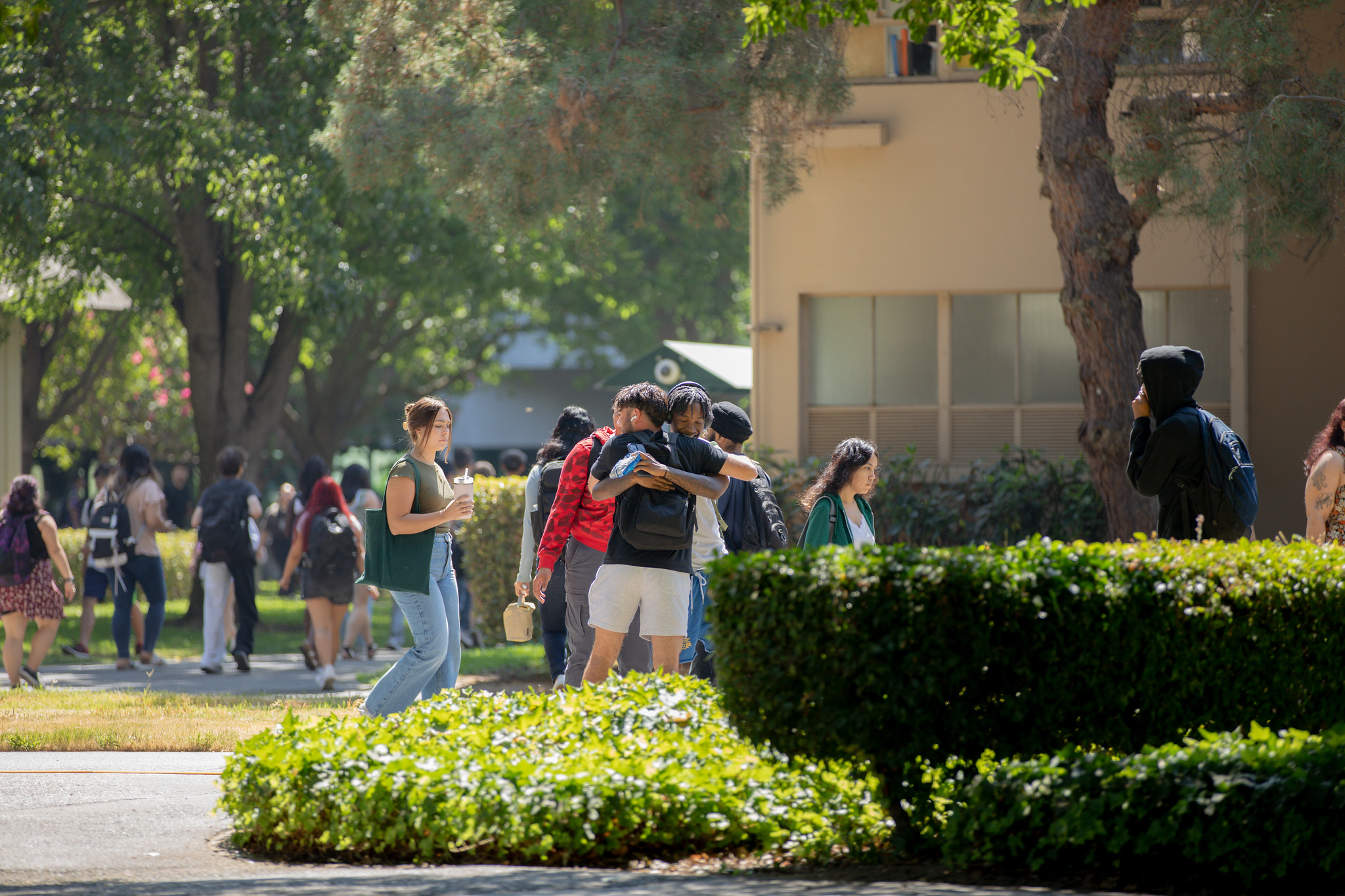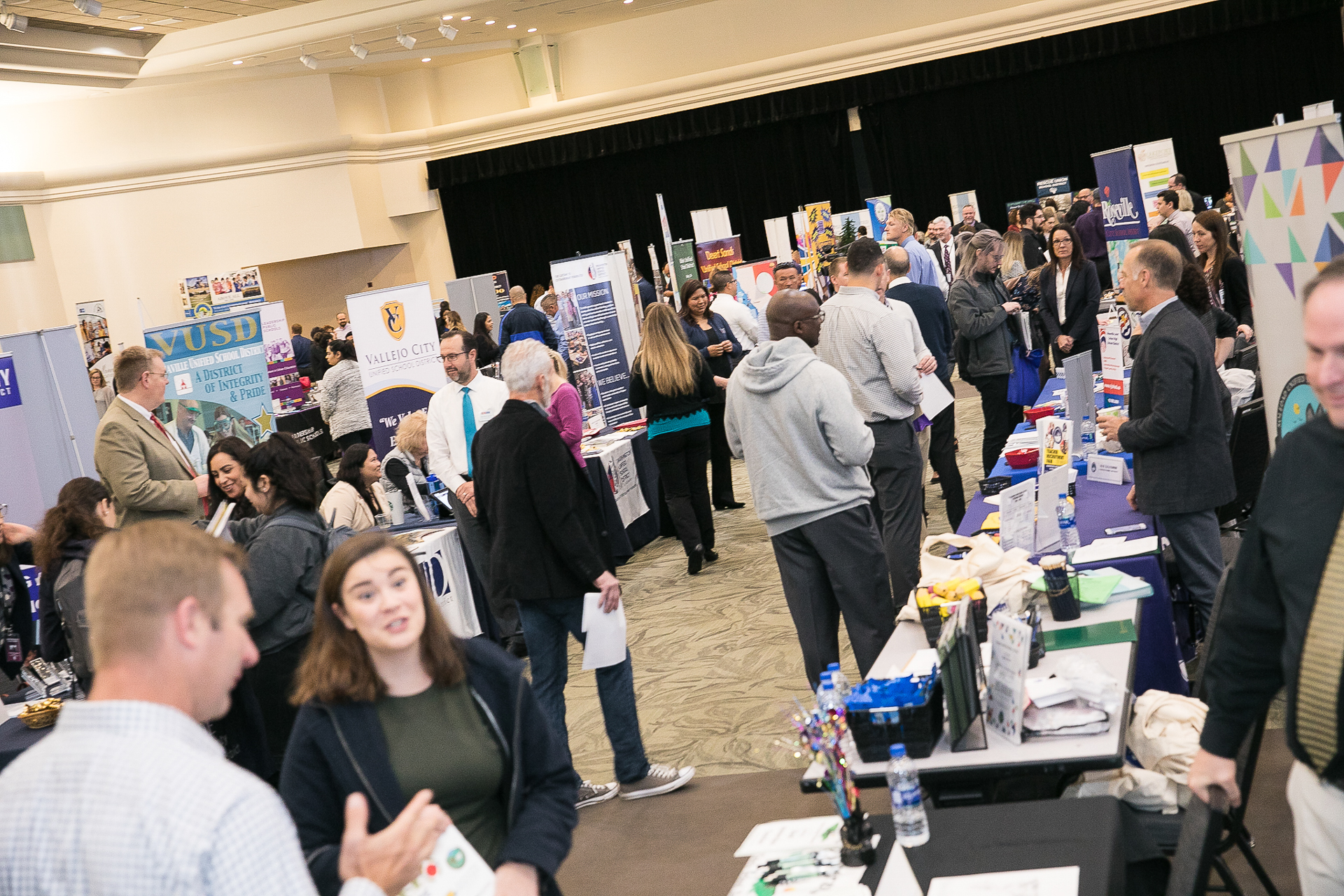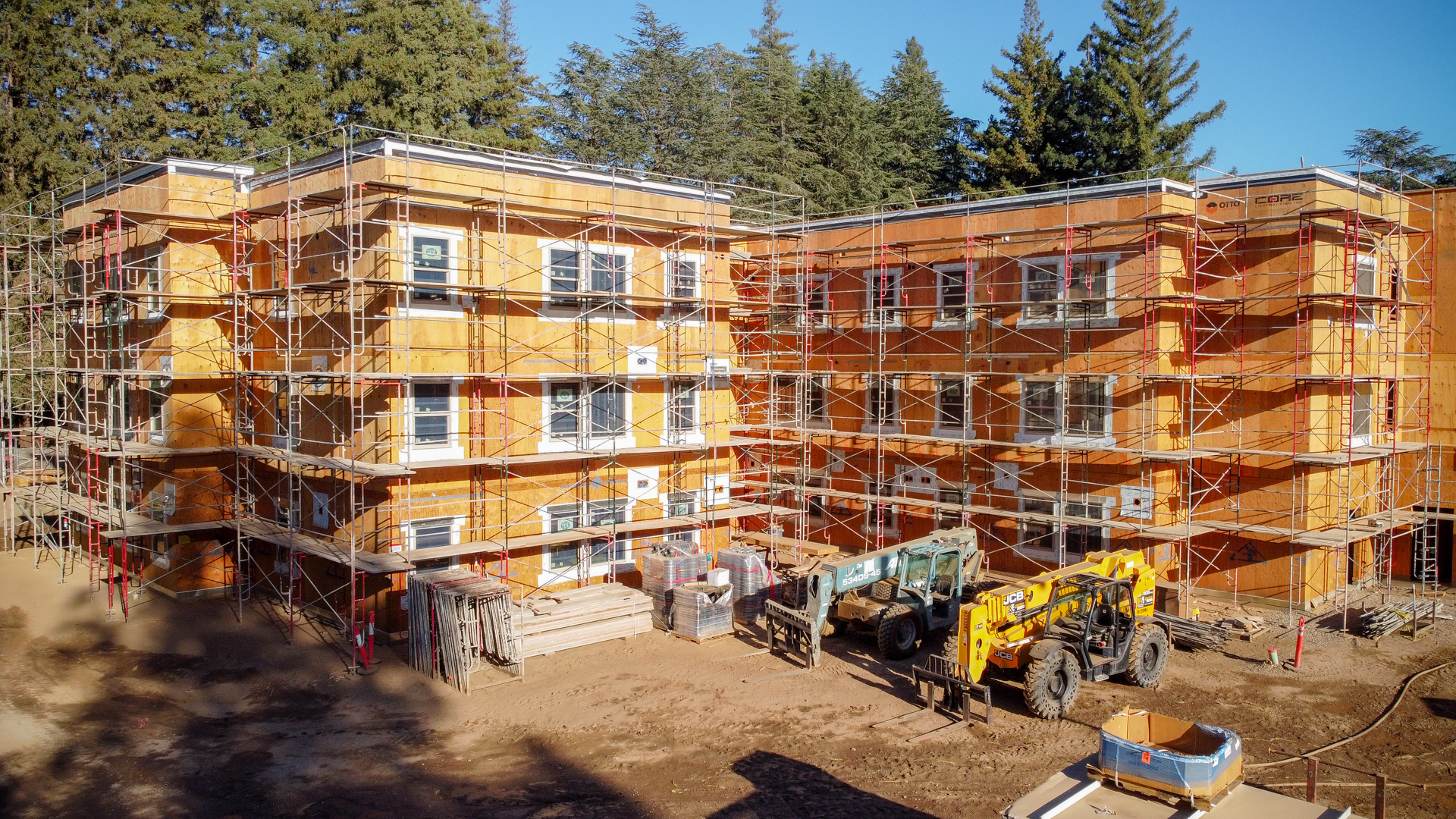Story Content
Sacramento State photography alumni highlight food insecurity through Yolo Food Bank partnership
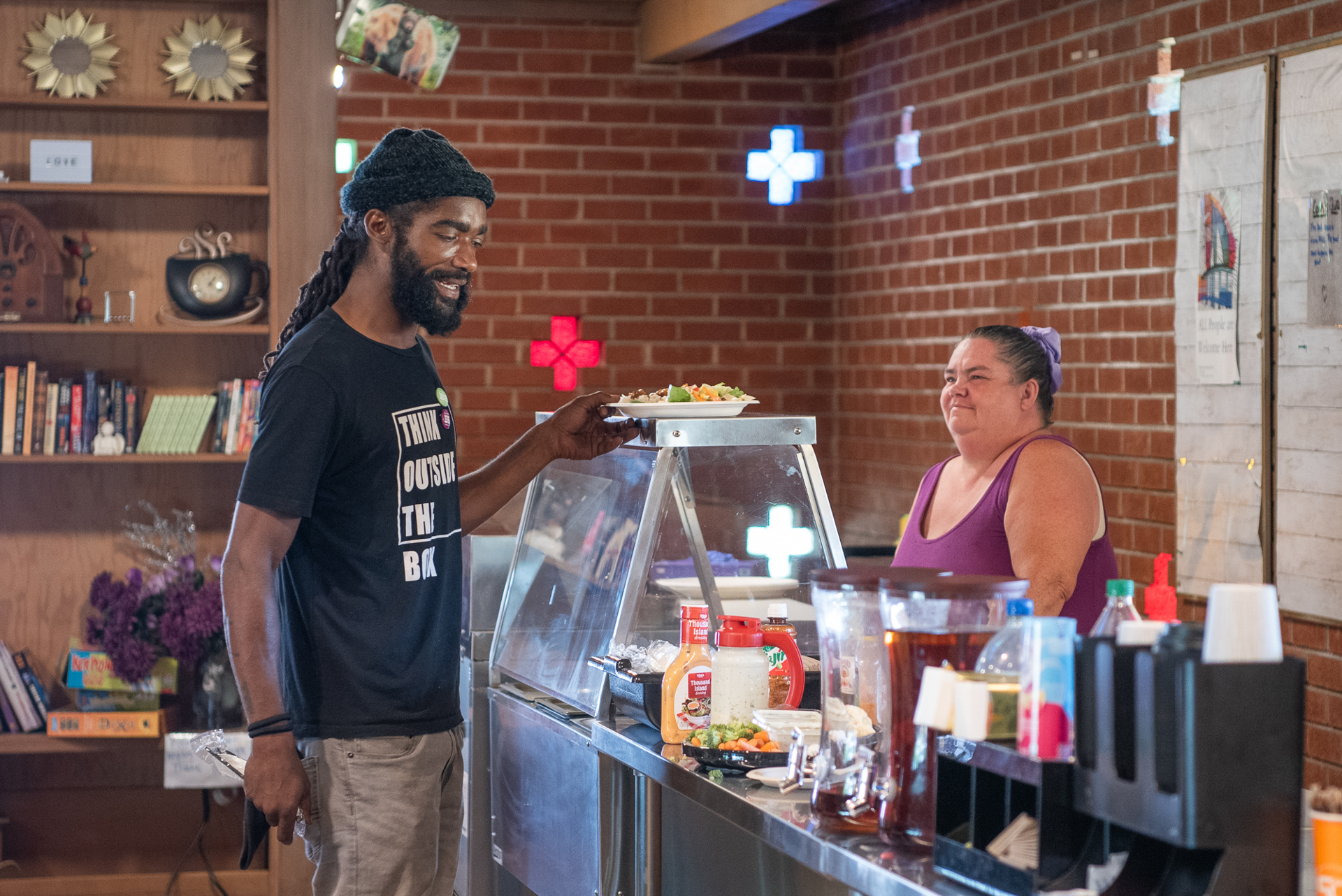
October 09, 2023
Charles Victor has spent most of the time setting up his business since earning his Photography degree from Sacramento State in May. Most of his work, he said, takes place in controlled environments such as the studio, where people are aware of him capturing their image.
So, when he first walked into Recovery Café, a West Sacramento safe space for people who have experienced trauma to enjoy a meal, learn life skills, or just socialize and support each other, he had to do something he wasn’t used to – he had to leave his camera in the bag.
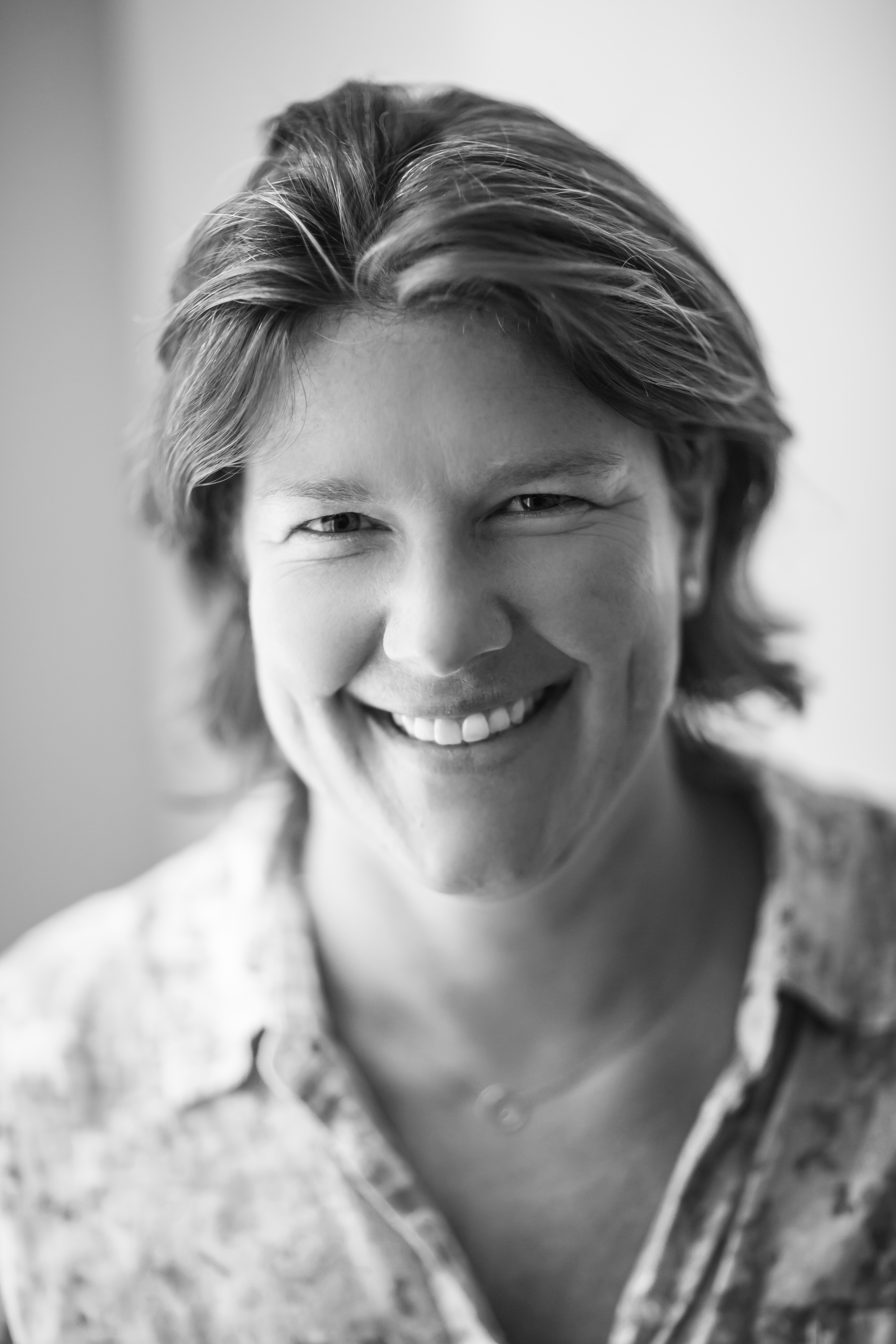
“I realized quickly – the opposite of what I do professionally – is no one is expecting photography,” he said. “I had to earn people’s trust in a different way.”
Victor is one of seven new Sac State alums who have been taking photographs for the Yolo Food Bank’s partner nonprofit organizations, gaining crucial experience and contacts while providing the often cash-strapped nonprofits with professional-quality images they can use for marketing and fundraising.
The partnership is the latest effort by Assistant Professor of Photography Eliza Gregory to not only teach students technical skills, but to take “a step toward my personal goal of trying to build bridges for our graduates to professional practice after graduation,” Gregory said.
The photographers’ work has two components. The first is practical: Take documentary-style images that will be easy for the nonprofits to use on their websites, in promotional materials and reports, and elsewhere.
The second part gives them the freedom to capture images they think are important based on what they’ve seen and heard, doing so artistically if they are inclined: food items scanned against a black background, for example, or stylized close-up images of a client’s face.
When the project finishes this month, the nonprofits and the Yolo Food Bank will have exclusive rights to use the images for three months. The artists can then submit their work to other venues. Artists are each receiving $1,000 from the food bank. An exhibit featuring their work will go up at the Barn Gallery in Woodland in July 2025.
“My mission in making these partnerships is to build capacity in my students, but also build capacity in the nonprofit sector so they understand how to work with emerging artists,” Gregory said. “Sac State alums just coming out of our program need support as they enter professional practice, so there is a lot of potential here for mutual benefit.”
The photographers will hand in their final work during a celebration at the Yolo Food Bank on Oct. 18.
Karen Baker, the organization’s executive director, has liked what she has seen so far.
“Just the way they can tell our story, both with the food that we work with, but also the families, was really surprising,” she said. “I was really impressed.”
The need within the community for food and other services is “going through the roof, and yet people are not aware of that, and I need to get that story out there,” Baker said.
The food bank’s number of clients has risen by 20% since the start of the pandemic, she said, but data can only tell part of the story. Powerful imagery can humanize an issue like food insecurity and build empathy, and the Sac State alumni have been up to the task.
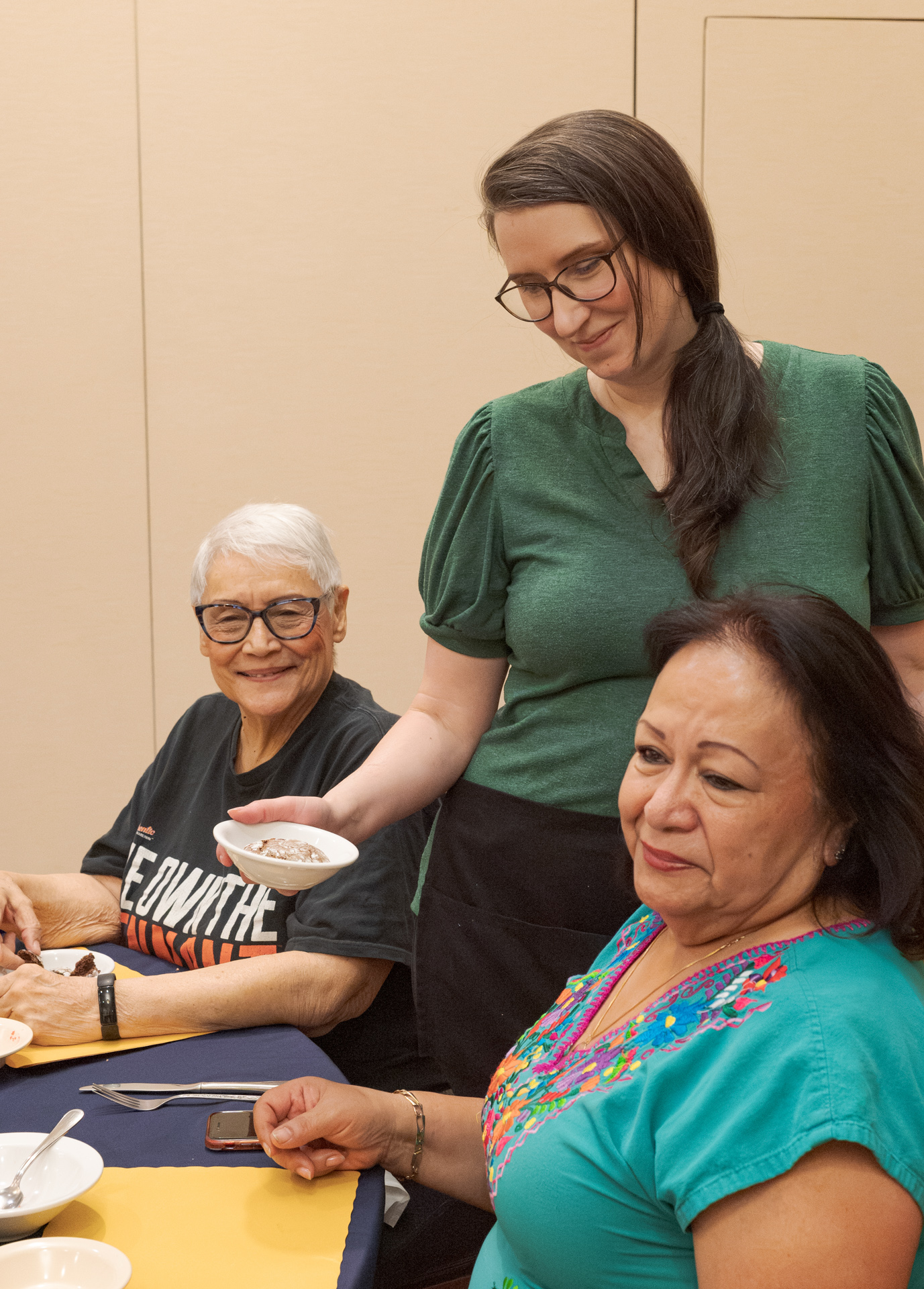
“I need to raise money, I need to raise supporters, and it all begins with being able to tell the story in a way that’s powerful and impactful, and touches their heart, and really helps them understand it,” Baker said. “And what you need are talented photographers with a lot of heart, and that’s what I noticed when I met these photographers. They not only had the artistry, but their compassion was just as incredible.”
The alumni will walk away from the job with two local contacts and references – the food bank and the nonprofit they worked with – as well as the skills developed while taking the photos.
Joseph Roman graduated with a Photography degree in 2021 and has been working in a grocery
store while picking up photography and gallery work where he can. The Yolo Food Bank project is his first commercial job, and he was assigned to the local Meals on Wheels chapter.
He spent the last few weeks photographing the kitchens, food prep staff, and the congregation halls where the organization serves meals. Doing so not only shored up his portraiture skills, but also helped him learn how to better connect with his subjects.
“It’s definitely teaching me how to communicate, and I think that learning to communicate overall what I’m doing with the imagery will help me whether I’m doing fine art or commercial art,” Roman said.
Another important part of the project, Gregory said, was reimagining how nonprofit organizations communicate their mission to the public.
“We are trying to tell stories that contain nuance and complexity,” she said. “We’re not looking to tell the same old story that objectifies people receiving services, receiving support. We want to try to tell new kinds of stories, where contradiction, emotion – true humanity – can come to the fore.”
Victor, the May graduate supporting Recovery Café, slowly brought his camera out, of course, learning to respect the space and the individuals, and whether they want their photographs taken.
All art can illuminate pressing issues, he said, but pictures have a unique power to capture and humanize a moment or individual.
“It’s not a painting or drawing of something that’s happening in real life. It’s an actual photograph,” Victor said. “That tangibility, I think, is really important in merging documentary and contemporary issues into art.”
Media Resources
Faculty/Staff Resources
Looking for a Faculty Expert?
Contact University Communications
(916) 217-8366
communications@csus.edu
